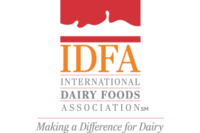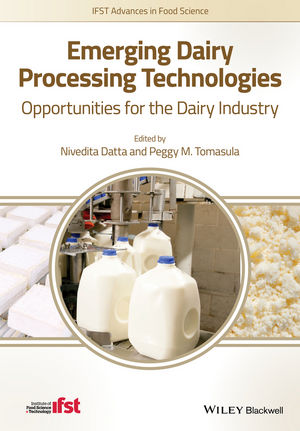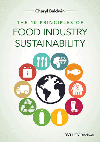Dairy Forum
Innovation is the lifeblood of the dairy industry, says IDFA's Tipton
She urges dairy processors to develop new products and collaborate with partners.

Contributed by the International Dairy Foods Association
 (Orlando, Fla.) In her keynote speech at Dairy Forum 2013, Connie Tipton (photo), president and CEO of the International Dairy Foods Association, said the dairy industry stands on the verge of a new era filled with enormous opportunity and unlimited potential. Saying that future success hinges on all stakeholders taking steps together, Tipton called for industry collaboration on renewed efforts to phase out federal milk pricing regulations and new legislation that would change the federal standards of identity for dairy products.
(Orlando, Fla.) In her keynote speech at Dairy Forum 2013, Connie Tipton (photo), president and CEO of the International Dairy Foods Association, said the dairy industry stands on the verge of a new era filled with enormous opportunity and unlimited potential. Saying that future success hinges on all stakeholders taking steps together, Tipton called for industry collaboration on renewed efforts to phase out federal milk pricing regulations and new legislation that would change the federal standards of identity for dairy products.
Tipton addressed a record crowd of more than 900 dairy producers, processors, suppliers and other industry participants gathered at the JW Marriott Orlando Grande Lakes this week for the 28th annual Dairy Forum.
Tipton opened with a look at the current state of politics in Washington, D.C. and its expected effect on dairy. While noting that Greek yogurt made a welcome debut on the menu for the inauguration day luncheon on Capitol Hill, Tipton warned that changes in the administration's policy direction are unlikely. She told attendees to expect more regulations for the food industry, more rules for school meals, more labeling requirements and possibly restrictions on marketing to children.
Calling innovation the industry's lifeblood, Tipton reviewed current consumer trends that will offer new opportunities for innovation in dairy products and processes.
• Americans are looking for more protein in their diets, especially low-fat sources of protein, so the use of protein claims on dairy products will likely grow.
• 2013 might become the year of the lactose-free claim.
• Concerns about sugar intake, especially added sugars, will continue through 2013.
• Less cooking and greater convenience are great selling points for today's consumers.
 "And we as an industry are recognizing those trends by building new value into tried-and-true commodities like milk, cheese and ice cream through innovative new products," Tipton said. She highlighted new protein-fortified dairy drinks, on-the-go cheese snacks in the right portions, the booming Greek yogurt market and the explosion of new ice cream flavors and snack-sized portions as examples.
"And we as an industry are recognizing those trends by building new value into tried-and-true commodities like milk, cheese and ice cream through innovative new products," Tipton said. She highlighted new protein-fortified dairy drinks, on-the-go cheese snacks in the right portions, the booming Greek yogurt market and the explosion of new ice cream flavors and snack-sized portions as examples.
Changes Required for Growth
For innovation and growth to continue, the industry needs an abundant supply of farm milk, but the combination of volatile dairy feed costs and farm milk prices, the U.S. biofuel policy and a major drought have caused a "quadruple whammy," Tipton said. "Going forward, one thing is for sure. The conventional thinking that 'milk will always be there when we want it' has to change."
Another area requiring change: Government regulations that continue to hinder industry's efforts to innovate and grow. Federal milk pricing regulations, food standards and other laws – some of which date back to the 1930s – have not kept pace with the times. Tipton proposed working together as an industry to provide greater product flexibility and innovation and collaborating on ways to remove "the shackles" of milk pricing regulation.
"Streamlining our milk pricing policies would be a great start to break the milk industry out of its doldrums and put some fresh wind in its sails," Tipton said. "It's time for our industry to come together in support of phasing out government-classified pricing and pooling."
She also encouraged industry participants to work in harmony to modernize food standards, adding, "Most of these standards are long past their sell-by dates and need to be pulled from the shelves." The rigid nature of the current federal food standards and the nearly impossible process for changing them are "grave impediments" to the innovation necessary to meet evolving consumer needs, Tipton said.
Later this year, IDFA will propose to draft new federal legislation that would allow meaningful innovation without changing the characterizing ingredients in the food. This change would allow dairy companies to use "safe and suitable alternatives and processes" and still market their products within the existing dairy food categories that consumers know and want.
"I believe there's enormous opportunity for our dynamic industry, and our potential is unlimited. The future glows bright with opportunity, but our success hinges upon taking steps together on the important issues and challenges we face as a domestic and global industry," she concluded.
Looking for a reprint of this article?
From high-res PDFs to custom plaques, order your copy today!








